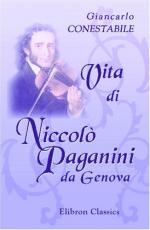|
This section contains 1,249 words (approx. 5 pages at 300 words per page) |

|
1770-1827
Composer
Early Life and Career. Ludwig van Beethoven was born in Bonn, where his father, Johann (1740- 1792), was a musician at the court of the archbishop elector of Cologne. Ludwig's mother, Maria Magdalena Keverich (1746-1787), was the daughter of a kitchen overseer in the palace of Ehrenbreitstein. During the future composer's early childhood he showed no inclination for music, but at the age of eleven he began to demonstrate extraordinary talent as a keyboard player and soon thereafter as a composer. At twelve he composed and published three complete piano sonatas of three movements each, which won acclaim for their sophistication and are still highly praised. By the age of thirteen he showed signs that composing music was becoming a compulsion for him, and for the rest of his life he wrote music prolifically. Beethoven remained in Bonn until 1792, when he moved to Vienna...
|
This section contains 1,249 words (approx. 5 pages at 300 words per page) |

|




